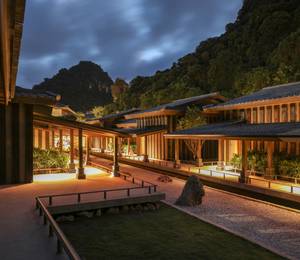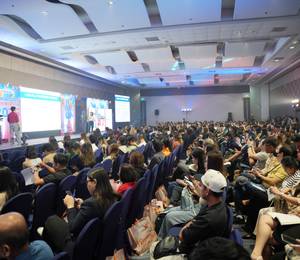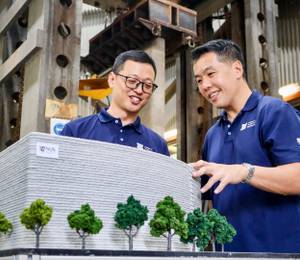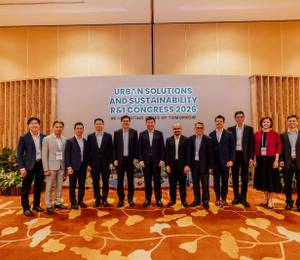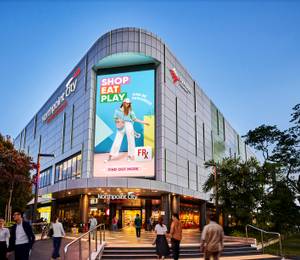London, UK – London-based PLP Architecture said it has been appointed the master designer and placemaking strategist for Tokyo Cross Park, one of the largest and greenest post-war urban redevelopment projects in Japan. It is also the architect for two of the four mixed-use towers on the 6.5- hectare site in the prestigious and culturally-significant Uchisaiwaicho 1- Chome district. The multi-year, multi-billion-dollar project will connect the city to the 16- hectare Hibiya public park and will include four towers, a 31-metre-tall podium and a two-hectare public plaza. A total of 1.1 million square metres of offices, commercial facilities, hotels and residential units, will be created when the project is fully completed by 2037.
The regeneration of midtown Tokyo will also see the rebuilding of the Imperial Hotel, a legendary landmark that has welcomed royalty, heads of state and international business leaders for over 130 years. Opened in 1890 by Japan’s aristocracy, it was rebuilt for its times in 1922 by American architecture doyen Frank Lloyd Wright before being redeveloped for the third time. The developers of Tokyo Cross Park are 10 of Japan’s largest corporations namely: Mitsui Fudosan, Nippon Telegraph and Telephone Urban Solutions, Kokyo Tatemono, The Dai-ichi Life Insurance Company, Chuo-Nittochi, Imperial Hotel, Tokyo Century Corporation, TEPCO Power Grid, Nippon Telegraph and Telephone Corporation and Nippon Telegraph and Telephone East Corporation.
Lee Polisano, President and Founding Partner of PLP Architecture, said: “We are deeply honoured to be part of this exciting enterprise. Everything that PLP embodies was brought to bear on this project. Through it, we will deliver our commitment to use design and technological innovation to contribute to the flourishing of life and business, and importantly to protect the built environment.”
Mr Polisano added: “The Tokyo Cross Park will become a flagship for sustainable development in Japan and will showcase the possibility of reaching the government’s target of carbon neutrality by 2050.” The project aims to achieve zero CO2 emissions with a centralised masterplan-wide energy strategy at the time of completion. Adding to this, by introducing new environmental technologies such as carbon absorbing technology, the masterplan aims to be carbon negative in the future. The Tokyo Cross Park envisions the growth of the capital’s green space, outwards from the Imperial Palace and Hibiya Park into the urban districts of the city. The new development has extensive green spaces and water, which will connect with the park through two pedestrian ‘park bridges’.
This link creates a 32-hectare human-centric and walkable environment rich in wildlife, water, and public meeting spaces aimed at bringing a focus on wellbeing, quality of life, sociability and connection to nature. As well as connecting to nature, PLP has designed to encourage the city’s top talents – people, institutions and companies – to engage in this new district. A programme of hyper-mixed functions, amenities and co-creation spaces provide the framework for the ‘best of Tokyo’ to come together and envision how the next generation will work, play and live. The district will be supported by advanced digital infrastructure, including digital twins, which will enable it to become a cross-disciplinary third-generation smart city. This technology will be used to enhance the offerings of the district by constantly evolving to suit the needs of individual users, such as through progressively optimising the wellbeing experience. The Tokyo Cross Park Vision features first-rate Japanese hospitality. The wide variety of premium hospitality offers are the result of close collaboration among stakeholders. In addition to the rejuvenation of the new Imperial Hotel main building, a separate small super-luxury hotel, owned by the NTT Group, and a wellness-focused hotel are also part of the redevelopment plan. Rental housing and serviced apartments will introduce a new premium level ‘live’ offer into the area.
